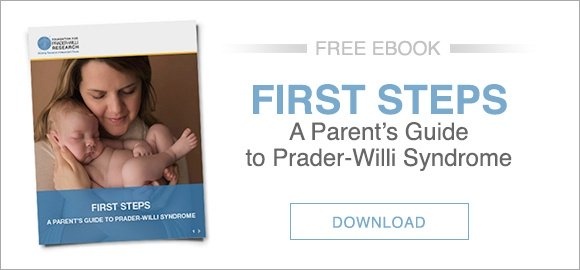Those with PWS often battle a variety of gastro-intestinal (GI) issues. Beyond general GI function and quality of life, there is a growing field of research exploring how GI composition and health is intricately connected to other systems in the body, including immunity and even brain function.
A recent paper titled “Microbiota Modulate Behavioral and Physiological Abnormalities Associated with Neurodevelopmental Disorders” shines a light on the connection between gut microbiota and brain chemistry, development, and function in a mouse model of autism spectrum disorder (ASD). It’s becoming increasingly clear that ASD has a complex and varied basis with a strong genetic component, and in some cases, a significant environmental contribution as well.
Gut microbiota is the scientific term for the complex community of bacteria that is naturally found in each of our intestinal systems. It serves many purposes, including being necessary for healthy digestive function. We each carry over 1000 different bacterial species totaling trillions of individual cells. While we share many of the same bacterial species, we also each differ by ~33%. For more information on gut microbiota, click here.
In this study, researchers used a mouse model of ASD that has GI abnormalities in addition to behavioral issues. They altered the balance of gut microbiota to help improve GI function and in turn, also saw significant improvements to ASD associated behaviors in the mice (e.g. anxiety and repetitive habits). To hear a discussion on the findings from one of the authors of the paper, follow this link and then click the yellow “paper clip” on the top right of the page for a six minute audio clip.
It is important to note that this work was performed in a mouse model, and just one of many models of ASD. It also only tested one very specific change to the microbiota. However, these results have exciting implications for exploring the link between GI health and human neurodevelopmental disorders, and open up the possibility of modulating the gut microbiome with probiotics or other therapies to influence positive changes in behavior. To begin to understand the potential interaction of the gut and PWS behavior, an important first step will be to investigate the variability in gut microbiota in PWS – across individuals, at different times during development, and in different genetic subtypes. This is an area of great interest for our community.
For more information on the first author of this publication, including her future plans to study the effects of gut microbes on serotonin levels, take a look at the NIH Director's blog: http://directorsblog.nih.gov/2014/01/09/creative-minds-can-microbes-influence-mental-health/








